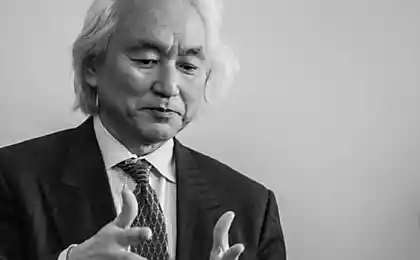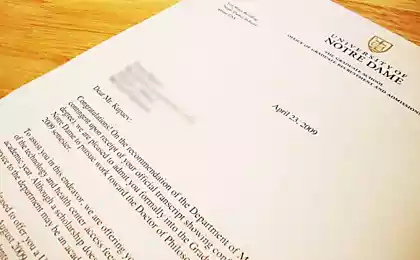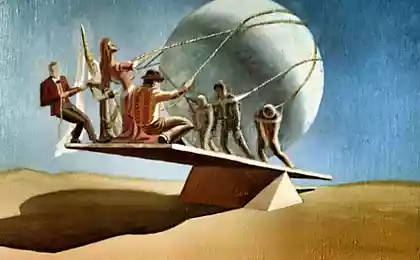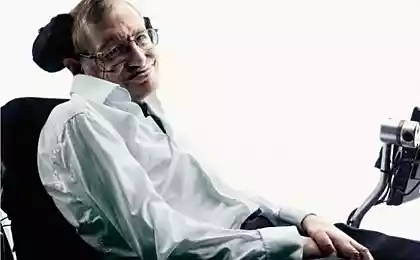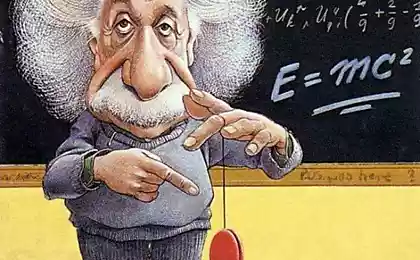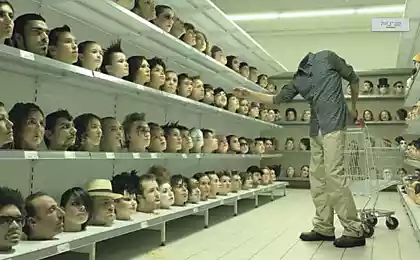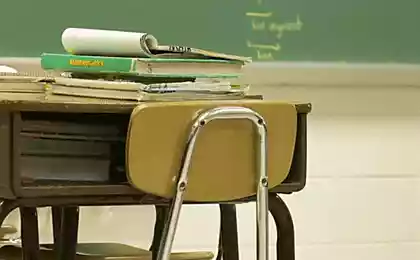606
Professor of theoretical physics Michio Kaku about the future of schools and universities in 100 years
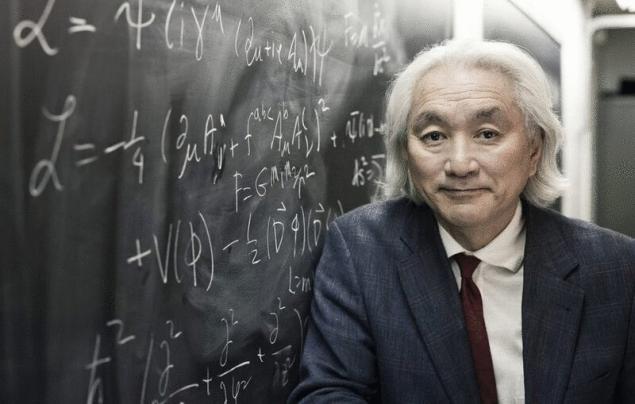
Last year, the newspaper the New York Times called Michio Kaku, one of the smartest people in new York. American physicist of Japanese origin conducted a series of studies in the study of black holes and the accelerating expansion of the Universe, became the founder of string theory, recognized as the main model of physics. The assets of the scientist-eight best-selling books, a series of programs on BBC and Discovery. Kaku — teacher with a world name: he is a Professor of theoretical physics at the University of new York, has traveled the world giving lectures. Michio Kaku said "VD", how he sees the future of education.
In his book "Physics of the future" you write that the education will be based on Internet technology and gadgets such as Google Glasses. What other global changes occur in education?
Most importantly — do not study will be based on memorization. Very soon computers and Google Glass transformirovalsya in tiny lenses, providing an opportunity to download all necessary information. There are already augmented reality glasses that have this feature. So after a year or two pupils and students in the exams can easily find answers to questions on the Internet: it is enough to blink and will be the necessary information. On the one hand, it is not necessary to overload the brain with useless knowledge, the main interest of which, as practice shows, are not subsequently used. On the other, the vacant mental reserve preoriented on the development of the ability to think, analyze, argue and make ultimately the right decisions.
In this case, there will be no need for exams, and teachers?
Of course, we will become more Autonomous, will take greater responsibility for their lives, accordingly, does not need any "regulatory authorities". People will form themselves, with really knowing what knowledge they need. And if you need assistance, they will receive it, for example, "smart" walls. Very soon these devices, based on artificial intelligence technology, will be located everywhere: in homes, offices, on the streets. It will be enough to approach the wall and say, "I want to talk to a biology Professor". And then the wall will be a scientist who can give you all the information you need. Such a system would be applicable not only in education but also in other fields of medicine, law, design, psychology, etc. of Course, the real specialists, such as surgeons, will be needed, but simple problems can be solved virtual. As for teachers, they are "alive" is certainly not needed.
Whether people will be able to move quickly in self-education, online-learning?
University online courses already exist, it really is a brilliant idea. However, the dropout rates for these programs is very high. This is due to the fact that people are still not rebuilt, not learned to work without a mentor on the principle of "just you and the computer monitor", they have no high motivation. On the other hand, the online system is in its infancy, it should be corrected. But developing and improving it rather quickly, and, of course, that her education next 50 years. Universities will continue, but it will be mainly virtual universities, training which is based on cloud system. Those who attend lectures in traditional educational institutions will be considered losers. On them will say: "He was not able to construct their own education."
Now confirmation of receipt of knowledge is a diploma. How can the future professional will confirm their competence in a particular area?
Diplomas will disappear as unnecessary, primarily because the education will no longer be subject to any temporal and spatial framework. Apparently, there will be certification centers in which specialists will take qualifying exams, which determine a set of skills and competencies. Depending on the result of people getting or not getting a certain position. Perhaps, over time, also introduces a standardized scale of points — the number will allow you to take a certain position in society. Consequently, universities become service providers, who do not appreciate these services. In the US, Canada, Japan, Europe very popular system portfolio when studying people accumulate diplomas, certificates and provides them to the employer. In the future, the accumulated intellectual baggage will be one of the key elements of the education system, and information technology services will make available human and transparent.
If adults can expect a conscious approach to education, children are unlikely to learn without constant monitoring...
Will actively develop children's educational services. In the next 10-15 years the possibility of what is now called non-systemic education will be limitless. In particular, is such a service as online pedagogy. And online — it does not mean that everyone is sitting in front of computers and looking at the monitor: change the very environment in which people live, and the interfaces that interact with them. Cities of the future, filled with information and communications solutions, will become themselves active participants in the new educational environment. In particular, it will offer more games for children, which for many days and months will pass in a real urban or specially prepared spaces. Tutorials learn stuff artificial intelligence, and he can pick up educational materials — photos, texts, videos, assignments, schemes to the needs of each individual student regardless of how old he is six or sixty. There are many developments, they are gradually being introduced.
Now, to become a good specialist, you need to develop the knowledge base and experience. What you will need in order to become a successful person in the future?
To achieve real success, you need to develop those abilities that are not available robots: creativity, imagination, initiative and leadership qualities. Society is gradually moving from a commodity economy to a knowledge and creative. No wonder Tony Blair likes to say that England gets more income from rock-n-roll than that of their mines. Much more likely to succeed in those countries that will be able to balance the commodity markets and the cognitive-creative potential. Nation who believe only in agriculture, will not last long, they are doomed to poverty.
Most futurists predict that the lion's share of jobs will be occupied by robots. What will people do?
The money will be biotechnology, nanotechnology, and artificial intelligence. Changing not only the education system, but the system works. Very soon there will be people in the factories, but there will be many new specialties in the intellectual sphere. The most important thing is to make the switch. The problem with most people is that they are inert and not a step can not do without looking at the crowd. The first thing you have to learn if you want to succeed in the future — don't be afraid to be different, to take full responsibility for your life, not to endure one day to change everything and follow a new path.
Now the unemployment rate is as high as ever, especially among young people. Whether to write it off to the world crisis or the share of fault lies with including the inefficiency of the education system?
The current system of education prepares professionals of the past. We teach them in order that they might go to work, which no longer exists, provide the intellectual tools that have long been ineffective. Why in the world such a high percentage of the unemployed. Why should the business owner to employ graduates: besides that they have no proper knowledge, and no experience. As a result, most of the world's leading companies is dominated by 50-60 year olds. But they will continue to learn — as soon as people will easily live to 120 years and to follow the inevitable, in my opinion, the concept of lifelong education. So now the specialists of the educational sphere radically revising the curriculum in the natural Sciences, which have direct relevance to the technologies of the future.
But not all have the inclination to intellectual work. Because of how talent is not prone to mental activity a person will be able to survive in a world of robots?
No highly developed artificial intelligence is not able to fully replace humans. We are actually much more advantages over machines than we can imagine. For example, a robot is no creative thinking, they have no consciousness of intuition. Therefore, they say, can't replace the stock brokers whose main goal is not the intellect and intuition. Survive are gardeners, builders, manual workers whose work is tied to creativity — that is, are not automatic functions, and a change of approach at different stages. In the near future "workers" are recognized specialties that are now considered to be the intellectual: programming, web design, 3D-design. What would a person not engaged, it has everything to be a creative approach, vivid imagination, the ability to quickly navigate the changing circumstances and a well-developed intuition.
What changes await the human intellect in connection with the development of modern technology from medicine to Cybernetics?
It is quite possible that by 2050 will create super-intelligence, far surpassing the best minds of mankind in almost all areas. For example, recently an international team of scientists in the framework of the European project Human Brain Project with an investment of $1 billion created a unique map of the human brain Big Brain, showing its detailed structure with a precision of 20 micrometers. This anatomical Atlas not only simplify the work of neurologists and neurosurgeons, will help to treat serious diseases, but also provide the opportunity to see how the brain processes emotions, perceives information. This will significantly speed up the process of creating a superintelligence, and also makes it possible to securely improve and stimulate the natural cognitive processes, knowledge base to turn out. Brain chips that provide a continuous supply of information — technology of the near future.
"The United States has the worst education system of all that I know. Knowledge of our graduates is lower than in the third world countries. How did the scientific elite of the United States has not suffered a collapse? We produce a generation of idiots — watch our TV and reality shows. And I've Amriki has a secret weapon called the visa for foreign scientists H-1B. Forget about Google, forget about Silicon valley — all this did not the Americans, and migrants. USA suck the best brains from all over the world — India, China, Russia. And we are only a figment of idiots."© Michio Kaku. published
P. S. And remember, only by changing their consumption — together we change the world! ©
Source: http:// blog-shabshai.com, pikabu.ru
Detoxification of the body by the method of Turkish doctors Saracoglu
The picturesque patio at the flower festival in Cordoba
